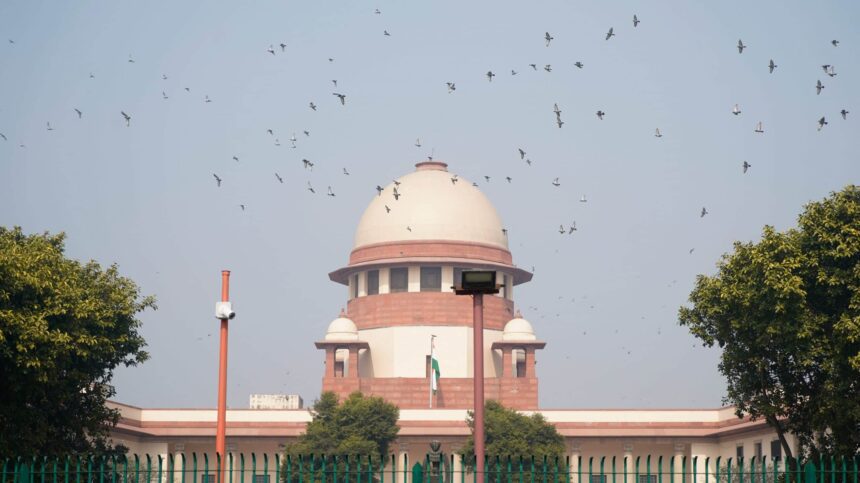The Supreme Court on Friday declined to intervene in the Gujarat High Court’s decision, which had refused to grant a four-week stay to the Mansa Masjid Trust against the proposed partial demolition near a 400-year-old mosque in Ahmedabad for a road-widening project, the Live Law reported.
Earlier, the Gujarat High Court refused to grant a stay on the proposed partial demolition of the id400-year-old Mansa Masjid in Ahmedabad’s Saraspur area, which has been marked for road widening near Sabarmati Railway Station.
In its order, the Court noted the authorities’ categorical stand before the High Court and referred to the division bench’s observation that “a portion of the mosque comprising some open land is being demolished due to the widening of the road, and that the main structure of the mosque is not being demolished.”
The Court added that it saw “no reason to interfere with the impugned judgment,” particularly as the demolition plan also includes a temple, commercial properties, and residential buildings of persons affected by the road project.
A bench comprising Justice Surya Kant and Justice Joymalya Bagchi kept open the question of whether the property in question qualifies as waqf property and if the Waqf Board is entitled to compensation.
The Court was hearing the Mansa Masjid Trust’s appeal against the Gujarat High Court’s order, which had allowed partial demolition of the mosque premises to facilitate the widening of a road leading to Sabarmati railway station.
On October 3, 2025, the Gujarat High Court refused to restrain the Ahmedabad Municipal Corporation from carrying out the partial demolition near the mosque, located in Saraspur.
The High Court noted that the procedure under Sections 210 to 213 of the Gujarat Provincial Municipal Corporations Act, 1949 had been followed and that other religious, residential, and commercial properties were also affected by the public interest project.
During today’s hearing, Advocate Warisha Farasat, representing the Trust, argued that the claim that the mosque would remain unaffected was incorrect, highlighting its 400-year-old heritage.
Justice Surya Kant, however, observed that the road widening was undertaken in “bona fide public interest for the benefit of the entire city.”
“The mosque is completely intact, and they have also dismantled a temple and commercial properties. For this road, one temple, one commercial property, and some residential houses had to be taken, causing extreme hardship for those affected. But all these measures were necessary for widening the road in one of the oldest cities in our country,” he noted.
The State countered that the Trust had indeed been consulted, with its representatives appearing before the municipal corporation. Farasat urged the bench to preserve the mosque structure, particularly the prayer hall, given its historical significance.
Justice Kant clarified that the mosque itself was untouched, “One temple has been demolished, one commercial property has been taken, and some residential houses have been acquired, often without compensation. In your case, however, the mosque remains untouched; only an open space with a platform is affected.”
Regarding compensation, Justice Kant noted that the Waqf Board would first need to establish its entitlement, and if found entitled, it would receive the appropriate compensation.
The mosque, believed to be around 400 years old, holds deep religious and cultural significance for the Muslim community, with its name recorded in official revenue records.
Over centuries, the masjid has been reconstructed and renovated multiple times, preserving its historic and spiritual value.
After the enactment of the Bombay Public Trusts Act, 1950, the mosque and its adjoining properties were formally registered as the Mansa Masjid Trust (Reg. No. B-655).
In late 2024, Gujarat’s Gir Somnath district witnessed the demolition of several Muslim religious sites, including places of worship, graveyards, and hutments, amid allegations that the action violated Supreme Court orders, with a petition by the Auliya-e-Deen Committee arguing the demolitions were unlawful, trampled on community property rights, and were conducted without notice or time to retrieve belongings.
The post Supreme Court refuses to stay partial demolition of 400-year-old Ahmedabad mosque for road widening appeared first on Maktoob media.










